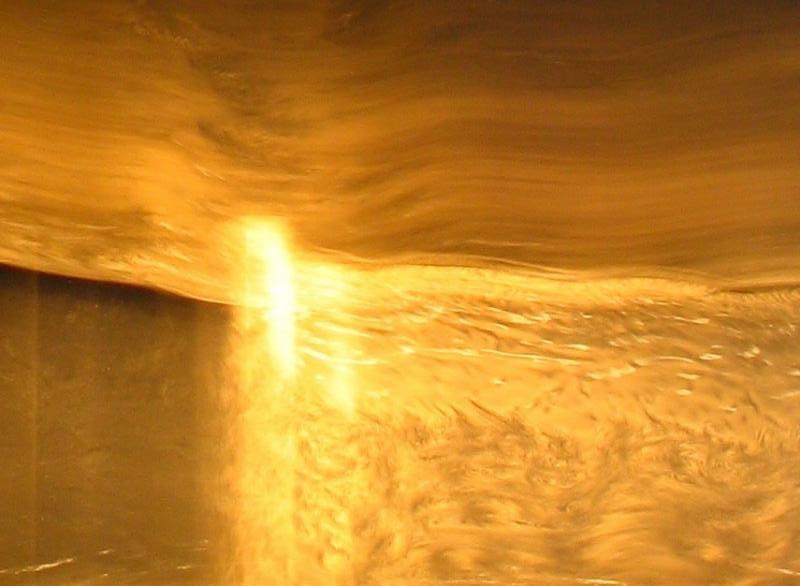
Photo-art by Steve Wing
I loved my father most as he walked home from work, clumping up the soft path through the wood toward the playground, squinting against the late-afternoon sun as it cut through the birch trees.
I loved him a lot when we were on the charabanc to Barry Island one Saturday a year (or more likely coming back) and we were singing, "For he's a jolly good driver!" to the back of a man's head.
I loved Dad when he taught me poems. What is this life, if full of care? And I could answer him, or If you can keep your head when all about you.
Are losing theirs and blaming it on you—oh, Dad was a good dad, then.
I thought of Dad when Miss Clissitt made me repeat my catechism: Who Made YOU? God made me. Why did God make you? God made me to know him, love him and serve him, in this world and the next.
My father was all things solid, then, the smell of steel, grease, newsprint, fire-wood. Tobacco was a good smell then, wholesome, what a family smelt like, what fathers smelt like.
The steelworks were not far from the railway tracks. The tracks were close to the docks, and I could recite then, what it said on the back of our exercise books, how the town imported pit-props and bananas, and sent out coal and shiny steel. And my father was part of that, a steel-man, someone who made things, crafted from night furnaces, heat.
What else can we do but live in our present state of knowledge, see the world as naively as we are, as innocently? Don't we say now our children are not children long enough? Let them believe things are easy. Spare them the truths. This is the wind, this is the rain, this is a father, a mother, a child.
I didn't think of fathers, then, as separate things. They were part of us and we of them. My Dad can, my Dad does. I am. My father's son.
I wonder now, though, now I am a man, what was I to him? I see me sometimes, a brown-paper kite, too heavy, stuttering into the air. My father runs away, holding a string. At the other end of the string, a child, me. I barely leave the ground. I don't like my father running away. Now I am a man, I see he had to run and not stop running.
Or I see him like Sisyphus, but the rock he pushes is me. If he can reach the top and let me go, I can out-run him, gather speed and power. The pushing will make him old and he will die. Stone cries out to stone. I roll away, my life eternally downhill, nothing to gather unless I bump into a wife, have a child, and start pushing myself.
Which is why it is so hard hearing the truth, why my mother left, the dark nights of the soul, the women who came there afterwards—this is a friend from school, son; she's a cousin, she's locked out; she missed her train to Paddington so I'm helping her out.
But after Mam, left, what about me? I loved my father most as he walked home from work. I loved him when he had a wife. I loved the sight of him clumping up the soft path through the wood toward the playground, squinting against the late-afternoon sun as it cut through the birch trees.